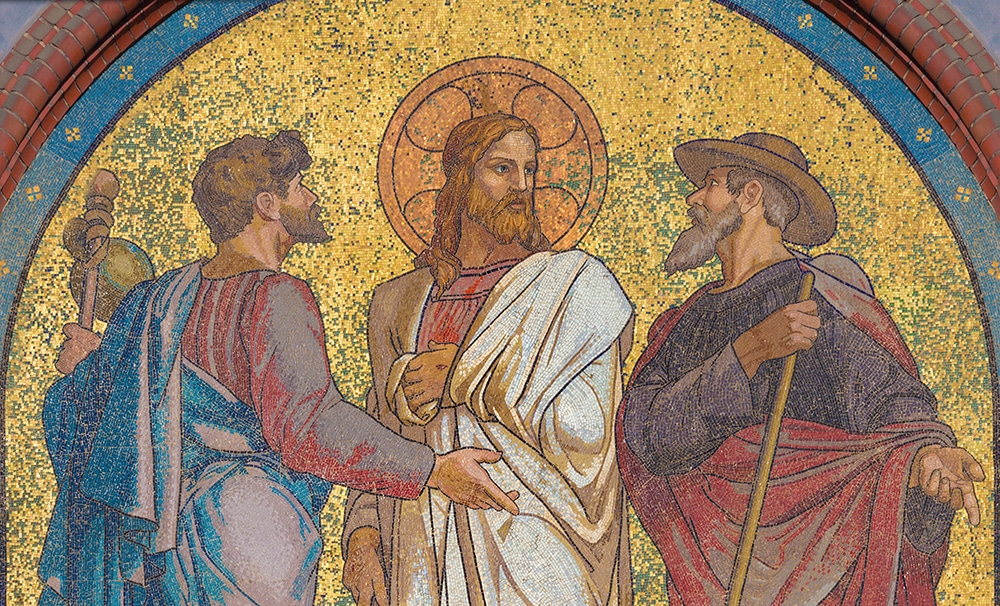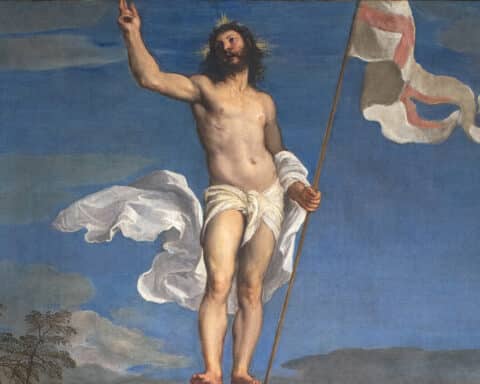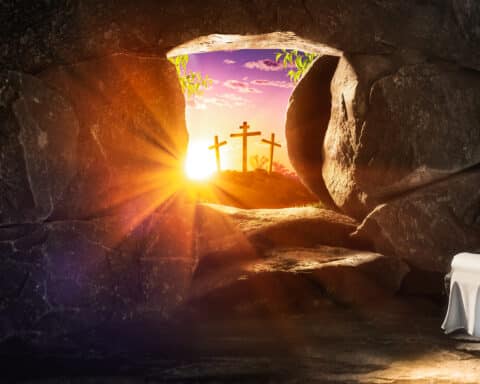
— Jackson Miller, Tampa, Florida
Answer: There are many possible explanations, but the text does not elaborate on the causes of why some, though not all, did not recognize him at first. It could have been, in the case of Mary Magdalene, that her eyes were filled with tears. It was also early morning, just after dawn, and perhaps shadows prevented a clear picture. It could also be that she was so focused on looking for Jesus that she did not bother to look directly at a man she presumed to be the gardener. Whatever the case, when Jesus spoke to her, she recognized him immediately. Theologically, this also reminds us that faith comes by hearing (cf. Rom 10:17), and so Jesus’ greeting awakened her faith and illumined her eyes.
In another case, the disciples are out on the boat and don’t recognize the Lord right away, but he is 100 yards away on the shore.
The disciples on the road to Emmaus are a special case. In this case, the reason is given, but it is still obscure. The English text says that “their eyes were prevented from recognizing him” (Lk 24:16). The Greek text is even stronger. The root verb krateó, translated here as “prevented,” means more intensely “to place under one’s grasp; seize or put under control.” And the Greek verb translated here as “recognizing” is epiginōskō. Here, too, the prefix “epi” intensifies the verb, which means to know and recognize something or someone you know personally.
So the text suggests a strong intervention that kept them from seeing Jesus and experiencing him personally. But who made this intervention? Was it the Lord? Was it the devil? Was it their own unbelief? Theologically, it could well be the Lord himself, because the upshot of the Emmaus story is that the Lord is teaching them to experience him liturgically in his word and in the holy Eucharist. For his preaching to them made their hearts burn with zeal and when he took, blessed and broke the bread (the Eucharist) they suddenly recognized him even as he vanished from their natural sight. Now they must learn to find him in the sacraments and in the holy liturgy.
As for the other sightings, in each case it would seem there was no trouble recognizing Jesus.
Rather than raising concerns about credibility, difficulties recognizing him at first would seem to enhance it. If the disciples were engaged in a conspiracy to assert that Jesus rose, they would have tightly controlled the message and surely omitted any apparent discrepancies, difficulties or doubts experienced by those who saw Jesus. Instead, what we have is a very real and human experience that “rocked their world.” It is clear that seeing the resurrected Christ was for most of them an ecstatic experience that created different responses. This is human, real and credible.
Vaccines
Question: Is the Church not aware that the COVID vaccines the bishops recommend are tainted by abortion? Why are Catholics taking them?
— Name, location withheld
Answer: The Church and bishops are certainly well aware of this problem. This issue of vaccines is nothing new; it has been a problem for at least the last 50 years. The current advice of the bishops is the same advice we have given all through this — namely, that Catholics should avoid vaccines that are tainted if reasonable alternatives exist. However, if after raising objections no alternatives can be found, Catholics are permitted (not required) to receive vaccines that may have ties to the tainted stem cell lines of which you refer.
I think it is a worthy project for the Church that we should begin to insist that the use of such tainted stem cell lines be discontinued. This, of course, will take time and be linked to our ongoing pro-life efforts. It is not praiseworthy that we have not done so already.
In the meantime, I would caution against shaming fellow Catholics for having received the vaccine. We have a lot of work to do in this department, and we don’t go from zero to 100 in the blink of an eye. I do not assert that you are shaming fellow Catholics, but others have, and the result can be counterproductive. I recommend a steady and patient discussion aimed toward refocusing the Church on ending these tainted stem cell lines.
Msgr. Charles Pope is the pastor of Holy Comforter-St. Cyprian in Washington, D.C., and writes for the Archdiocese of Washington, D.C. at blog.adw.org. Send questions to msgrpope@osv.com.





